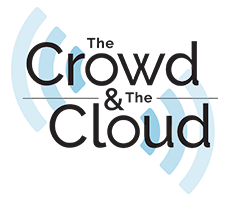
Newsletter
Sign up and stay in-the-know about The Crowd & The Cloud and the world of citizen science.

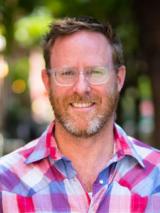
Tell us a little about yourself?
I'm David Masur and I live in South Philadelphia. I work at a nonprofit environmental group called PennEnvironment. We're a citizen-based environmental group. I got involved in the issue of lead in drinking water for two reasons. One, the nonprofit group I work for has a lot of citizen members who were calling and voicing concern about lead in their drinking water after the Flint, Michigan, crisis really erupted. More and more data was coming out in Philadelphia about drinking water and potential lead contamination. And also, as a parent of two young kids, a six year old son and two and a half year old daughter, obviously protecting their health is very important.
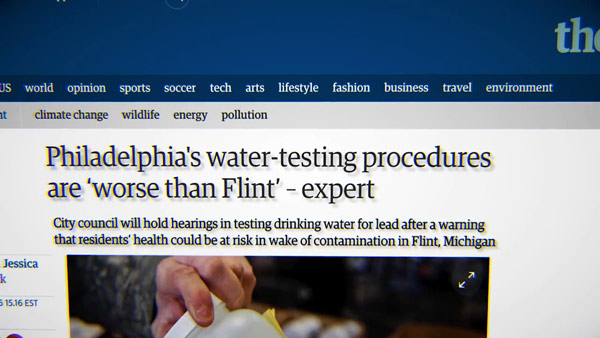
Headline from The Guardian
How did PennEnvironment get started in the testing?
At one end of the spectrum, we just had the clamoring from the public, wanting more information and knowing what they can do in their daily life, to try to attack this situation of lead in drinking water. I think a lot of citizens felt like they honestly didn't trust the Water Department to get the results that they wanted. At PennEnvironment, we want to respond to where the people are, what they're concerned about, and help them to tackle these issues. Of course, at the other end of the spectrum, as a citizen-based environmental group, we're always trying to find opportunities to galvanize public support and organize them to be more powerful in their communities. We give the public an outlet for being engaged in a way that is proactive and can make a difference.
What's been your experience on dealing with the Water Department and the City in trying to get this testing in place?
Unfortunately, as both the PennEnvironment director and a consumer of the water department, I wished that their response would be a bit more aggressive and proactive, and really let the public know that the Water Department sympathizes with their concern. That it wants to do whatever it takes to help to solve the problem, and give their customers avenues to solve this problem. Often, it's felt that the Water Department has really been very either laissez faire or even a little patronizing in feeling, almost like patting a child on the head and saying, "We hear your concern, but really there's nothing there, and go on your way," and that's not a response that I wanted to hear. Hearing from other concerned citizens, they clearly didn't like that answer, either.
Do you see this is a long term effort?
Many people had thought the issue of lead in drinking water had gone the way of the dinosaurs. That wasn't really something we have to be concerned about in the 21st century. I think this has just shown that, if it's lead or other contaminants in our drinking water, our surrounding environment, there's a lot of more work to be done to tackle these threads. This is step one, and for better or for worse there's so many places where the public could get involved to get more and better data. If it's lead in drinking water in their home, or in the Philadelphia school system, I think this is the tip of the toxic iceberg when it comes to the problem, and how the public can be part of the solution. In the ideal world, we would be able to show the Water Department and our elected officials that the public cares deeply. One thing is that, in a democracy, this is how the public shows that they have concerns and that they can be part of the solution. There probably won't be a silver bullet, but I think the Water Department has to regain the trust of consumers and customers, do a better job to inform and educate the public, not only about the risk, but how to avoid it.
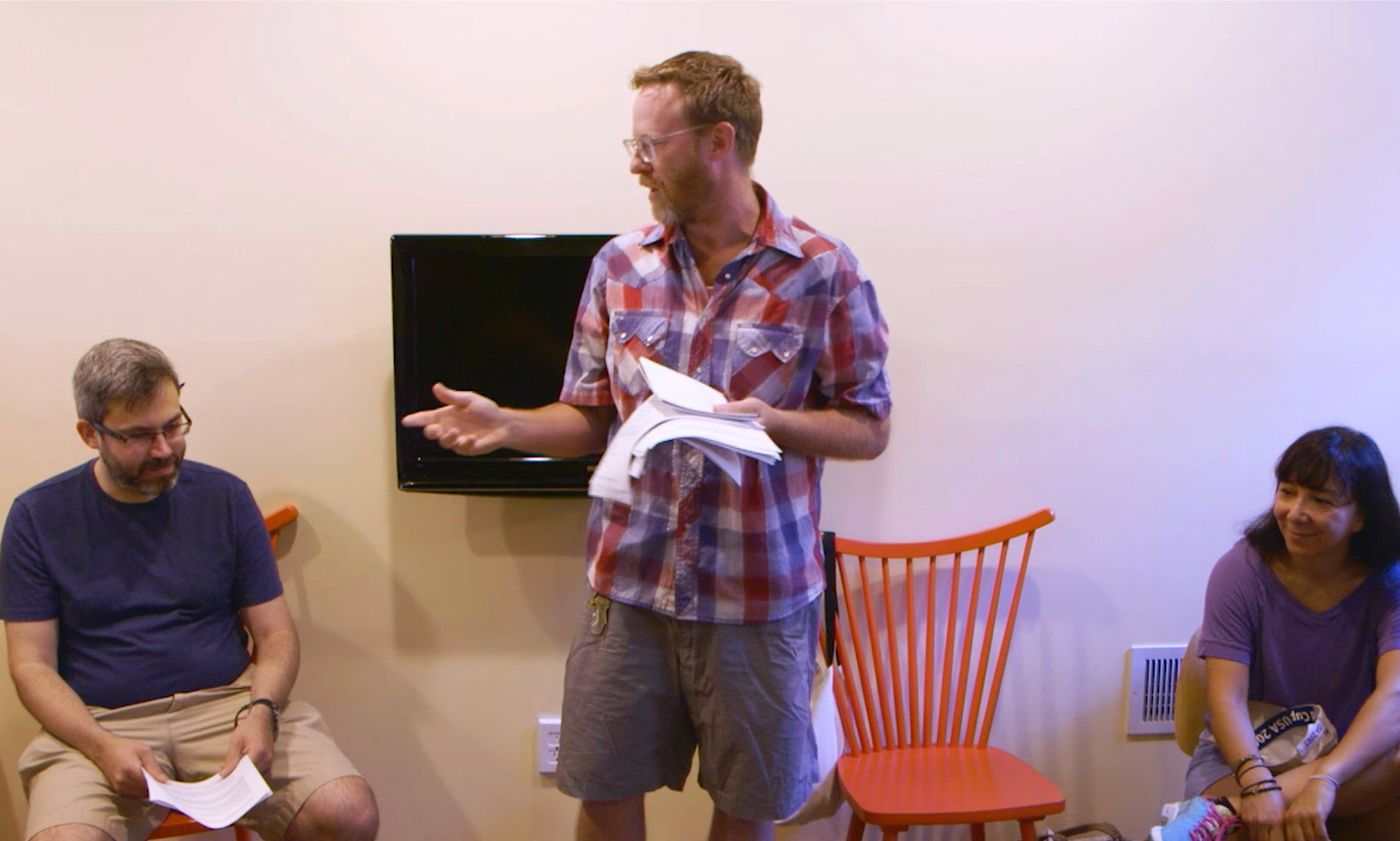
David addresses PennEnvironment.
There's something sad about the fact that here, in the 21st century, we put a man on the moon 60 years ago, so we obviously have the ability, technology and wealth to solve these problems. We should have infrastructure that is 21st century standard, not 19th century, and make sure that all of our drinking water is safe. It’s not rocket science to solve that, I think.
Tell us a little about the involvement of citizens in the case of Philadelphia?
After Flint, Michigan, and when it became clear that Philadelphia was really part of the eye of the storm, local residents would email or call me and say, "What's going on here? What can I do?" At some point another local activist, Tony Spagnoli, reached out and said, "Hey, I saw you're doing some work on lead in drinking water. I'm doing a bunch of work and organizing people. Maybe we should meet and talk about what we are doing, share strategies." It spoke to how this issue of lead in drinking water, and the Flint crisis, spoke to people in society. That they really wanted to be part of the solution. A bunch of us came together in that way and starting to say, "Well, we're probably better off if we all organize together."
Who were you working with to do the analysis?
A number of academics at Virginia Tech who were involved in working with citizens just like us in Flint, Michigan, who have the expertise to do the water testing through the confluence had reached out and said, "We can help you. We have the scientific background of how to do proper testing, as required under the Safe Drinking Water Act and the EPA guidelines. If you can find the people, we'll get you the test kits, and we'll collect all the data and get it back to you, so you can see the individual results and try and chisel together a bigger picture of what's happening with the potential lead in drinking water in Philadelphia.”
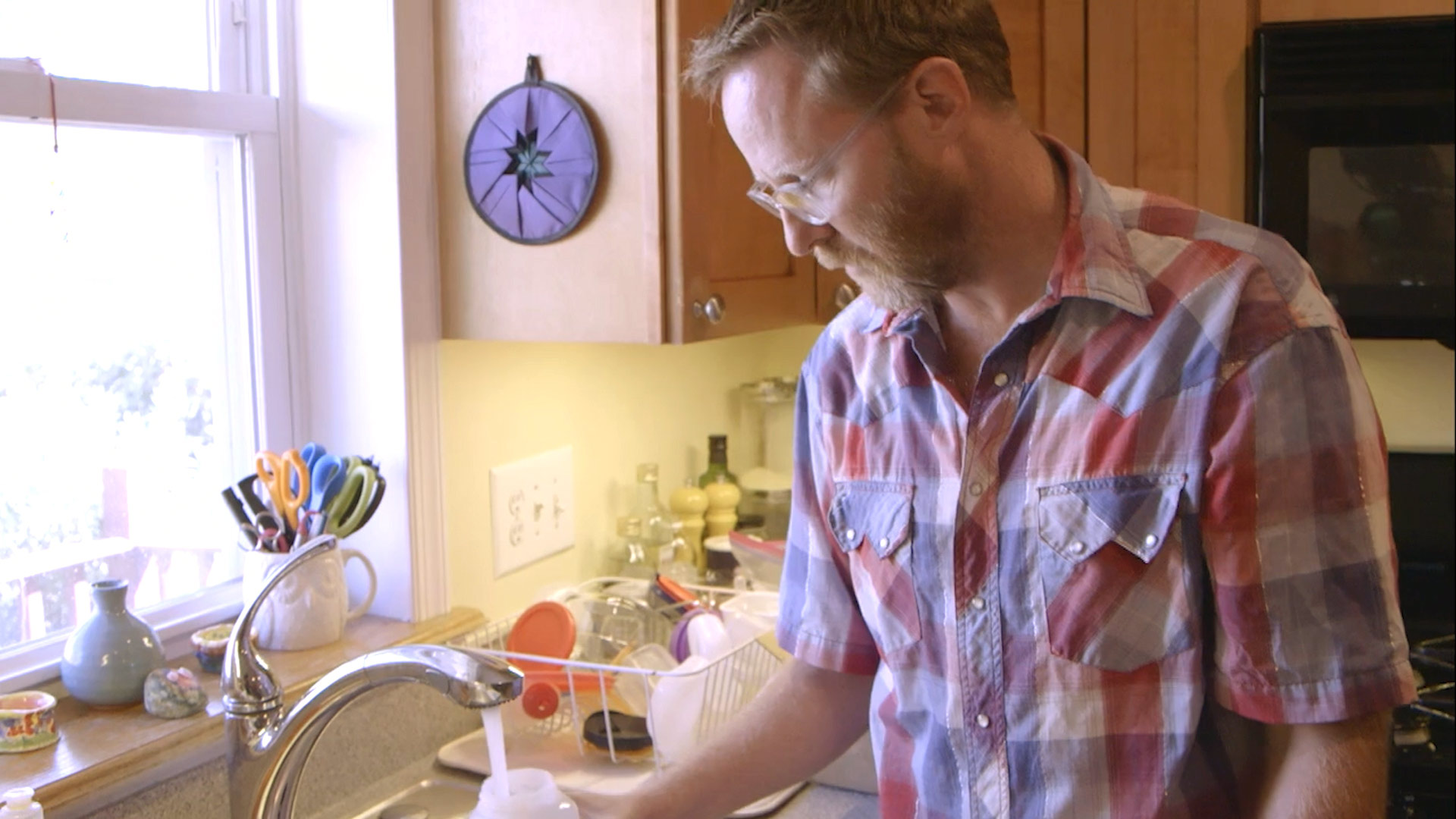
David demonstrating the proper way to take water samples.
What phase are you at in the process of testing? (These comments were recorded in July 2016.)
We've just received all the testing kits from Virginia Tech, and now all the different local groups and activists are coordinating a strategy for recruiting people who want to raise their hand and be part of this citizen testing. At that point, we will train them on how to do the water samples. (C&C: the sequence in the Philly Unleaded video where community members show their care and even pride in faithfully implementing the Virginia Tech testing protocols is one of the highlights of the entire series.) We'll get them the test kits. We'll collect them back over the next probably six to eight weeks, and we'll send 50 to 150 samples from different homes all over neighborhoods in Philadelphia to Virginia Tech. Once we get the results back, we can really show the Water Department that to comply with the testing regimen under the same Safe Drinking Water Act is not that complicated. Even nonprofit groups can go out and do the proper testing.
Is this science or activism?
Both science and activism! It gives people an outlet to solve problems, to get data, and hopefully over the long term, it's a core way that the democratic process works. That the public can get engaged civically and not only get data but hopefully be a catalyst for real action at the systemic level. Not just here in Philadelphia, but hopefully people will see this and say, "Oh, this is invigorating. I can do this in my own home. I can do this in my own community," and it creates a real change that betters our lives.
